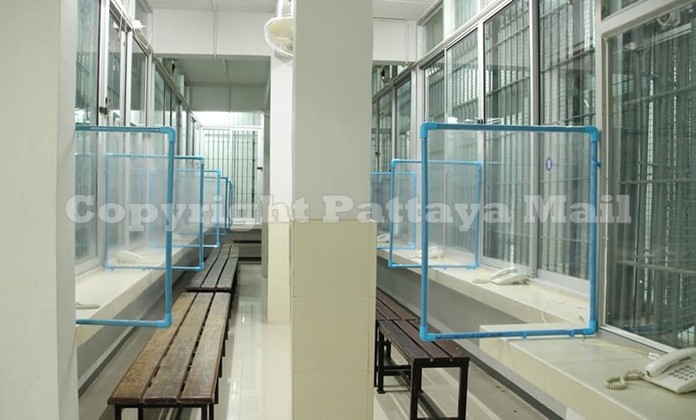
About 10,000 people were arrested for not staying at home during the emergency-decree curfew which ends on June 15, according to the Centre for Covid-19 Situation Administration. This includes an unknown number of foreigners since the relevant statistical data is not published.
However, a check on published reports in local and national media suggests the number of foreigners was not lower than 200. Although the maximum penalty for them would be two years in jail and/or deportation to their country of origin, that scenario seems not to have been regularly implemented.
Police prosecutors and Thai courts have been unwilling to use severe penalties where the offences were deemed to be minor. This is because the Thai prison population of 300,000 already heavily outnumbers the recommended numbers even without the added problem of the risk of coronavirus infection. About 75 percent are confined for drugs-related crimes.
Director General of the Department of Probation, Vittawan Sunthornkajit, said that several thousand non-jailed offenders had been referred to his service for community work such as assisting monks in temples. He justified this as encouraging in offenders “samnuek di” or conscientiousness.
Somsak Thepsuthin, the Justice Minister, agreed that lesser offences associated with curfew breaking were best dealt with by the probation service. He stated that prison sentences were best reserved for those attending drugs or alcohol fuelled parties rather than those caught “driving for pleasure”.
Although the published data is limited, we do know that some foreigners found to be curfew breakers were treated more leniently than a long term of imprisonment followed by deportation. Paul, a 35-year old Frenchman, arrested for being present at a poolside party outside of permitted hours was fined 30,000 baht without the public prosecutor insisting the case go to court.
A group of three Australians who wandered into the sea when such pleasure-seeking was not permitted, were very publicly arrested but eventually let off with a warning and allowed to continue with their vacation. A British man found to be drinking beer in an illegal drinking den was fined 50,000 baht but without a deportation certificate being issued.
Khun Chalerm, a bail broker at Pattaya court, said, “A lot of discretion has been used as the government does not want to see foreigners, especially in groups, sent to overcrowded prisons unless their crimes were serious such as illegal use of drugs or violence. They have usually been fined or, in a few cases, ordered to do community service.” He added that deportation was a penalty of last resort as the process could be long-drawn out and subject to appeals to the Ministry of the Interior.
The general approach of law enforcers during the curfew seems to have been to treat with relative leniency behaviour which isn’t normally illegal, for example driving at night or drinking alcohol at the wrong time. Where foreigners are offered the chance to pay a fine rather than undergo lengthy court proceedings, they are likely to opt for that. For obvious reasons.
 |
 |
 |





